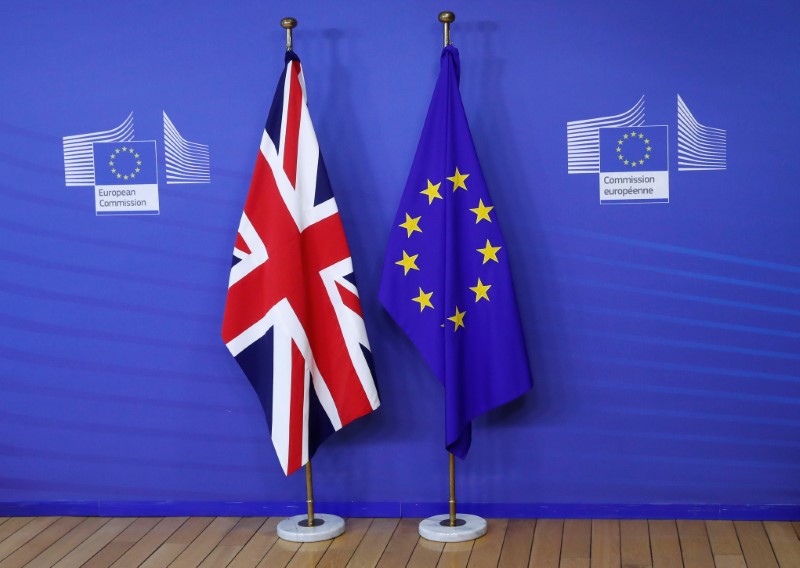LONDON (Reuters) - The British government must stop "dancing around" the details of Brexit and work out what kind of transitional deal it wants with the European Union, lobbying group the Institute of Directors said on Friday, as it set out a raft of possible options.
Britain has already started negotiating with the EU over how to extricate itself from the bloc after more than 40 years of social, economic and legal integration, with an exit scheduled for March 2019.
But while ministers are increasingly united on the need for a transitional arrangement to dampen the impact of exit, their opinions differ on exactly what that will involve on issues like trade and immigration, and the overall strategy remains unclear.
"There is now a window of opportunity for the government to flesh this out as a policy objective in order to reassure companies that a smooth and orderly Brexit is on the cards," said Allie Renison, Head of EU and Trade Policy at the Institute of Directors.
The policy proposals said a focus on defining what the transitional period would involve "could minimise the growing level of confusion and uncertainty in this area".
The group, which represents the interests of large corporations through to small enterprises, put forward several options for a managed exit.
These included focussing on winning an extension of the two-year negotiating period -- described as the simplest option on paper, but the hardest to deliver politically -- to seeking membership of the European Economic Area.
The latter option, it said, would allow flexibility when implementing EU law, but could be difficult to pull off within the timeframe.
It said a proposal, once cited by the EU council, to allow EU laws to be applicable during a transition would be a more comprehensive solution and could be negotiated more easily, but would mean continued reliance on the European Courts of Justice -- a likely stumbling block for many pro-Brexit lawmakers.
The group did not recommend a single solution, and said some of the different options could be combined to achieve the best outcome.
"Instead of dancing around the edges, this issue must become a policy discussion for the Cabinet," the report said.

"The sooner both the UK Government and EU accept the need to engage on this area, the easier it becomes to achieve a smooth and orderly exit."